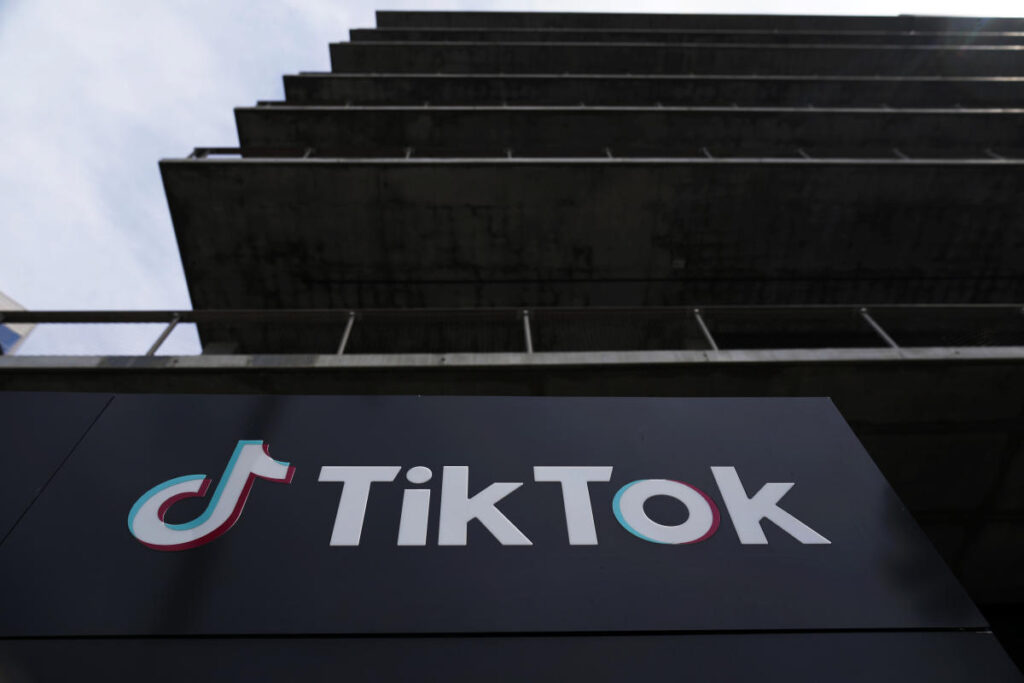WASHINGTON (AP) – The House of Representatives passed a bill Saturday that would ban TikTok in the United States if the popular social media platform's China-based owners don't sell their shares within a year, but the app soon I don't think it will be abolished.
House Republicans' decision to include TikTok as part of a massive foreign aid package, a priority for President Joe Biden with broad support in Congress for Ukraine and Israel, comes after an earlier version passed the Senate. After an impasse, the ban was moved quickly. A standalone bill with a six-month sell-by date received a bipartisan overwhelming majority in March after both Democrats and Republicans raised national security concerns about the app's owner, the Chinese technology company ByteDance. It passed the House of Representatives with a majority.
The amendment passed by a vote of 360-58 and will now be sent to the Senate following negotiations that resulted in a compromise.
But even if the bill were passed, the company said it would take up to a year to find a buyer, saying it would strip millions of the app's users of their First Amendment rights. , will likely seek to challenge this law in court. Court challenges could significantly delay the timeline set by Congress or prevent the law from taking effect.
The company lobbied hard to oppose the bill, encouraging its 170 million users in the U.S., many of them young people, to call Congress to voice their opposition. But the intensity of the backlash angered lawmakers, as there are widespread concerns about the Chinese threat to the United States and few members of Congress themselves are using the platform.
“We will never stop fighting and advocating for you,” TikTok CEO Shou Zi Chew said in a video posted to the app's users on the platform last month. Ta. “We will continue to do everything we can, including enforcing our legal rights, to protect this amazing platform we built together with you.”
It is unusual for this bill to pass Congress so quickly. That's because it targets one company, and Congress has taken a hands-off approach to technology regulation for decades. Lawmakers failed to act despite efforts to protect children online, protect user privacy, and hold companies more accountable for content posted on their platforms.
TikTok's ban reflects lawmakers' broader concerns about China.
Lawmakers and intelligence officials from both parties say Chinese authorities will force ByteDance to hand over U.S. user data and direct it to suppress or promote TikTok content favorable to ByteDance's interests. I am concerned that this is a possibility. TikTok has denied claims that it could be used as a tool by the Chinese government and said it does not share U.S. user data with Chinese authorities.
The U.S. government has not publicly provided evidence that TikTok has shared U.S. user data with the Chinese government or tinkered with the company's popular algorithms to influence how Americans view it.
The company has had some success in previous legal battles over its U.S. operations, and there is good reason to think a legal challenge could be successful. In November, a federal judge blocked a Montana law banning the use of TikTok across the state after the company and five content creators who use the platform sued.
In 2020, a federal court blocked then-President Donald Trump's executive order banning TikTok after the company sued for violating its free speech and due process rights. His administration brokered a deal in which U.S. companies Oracle and Walmart acquired large stakes in TikTok. The sale did not materialize for various reasons. One is China, which has imposed stricter export controls on technology providers.
Dozens of states and the federal government have banned TikTok from being used on government devices. Texas' ban was challenged last year by Columbia University's Knight First Amendment Institute, which argued in a lawsuit that the policy interferes with academic freedom because it applies to public universities. . In December, a federal judge ruled in the state's favor.
Groups such as the American Civil Liberties Union are supporting the app. “Congress needs to support the more than 170 million Americans who use TikTok to express themselves, engage in political advocacy, and access information from around the world,” said Jenna Leventov, an attorney for the group. Rights cannot be taken away.”
Since mid-March, TikTok has spent $5 million on TV ads opposing the bill, according to ad tracking firm AdImpact. The ads feature a variety of content creators, including nuns, who praise the platform's positive impact on their lives and argue that the ban violates the First Amendment. The company also encouraged users to contact Congress, and some members of Congress received calls containing profanity.
“The House of Representatives is using the cover of critical foreign and humanitarian aid to reinstate a ban that would trample the free speech rights of 170 million Americans, destroy 7 million businesses, and shut down the platforms that contribute to them.” It's unfortunate that they're trying to sabotage it, which brings in $24 billion a year to the U.S. economy,” company spokesman Alex Howrek said.
Nadia Okamoto, a content creator with nearly 4 million followers on TikTok, said she and other creators are feeling “huge anger and anxiety” about the bill and how it will affect their lives. He said he is talking with them. The 26-year-old runs a company called August, which sells menstrual products, is known for advocating for destigmatizing menstrual periods, and makes most of her income from TikTok. I'm getting it from
“This is going to have a huge impact,” she says.
___
Hadero reported from New York.


